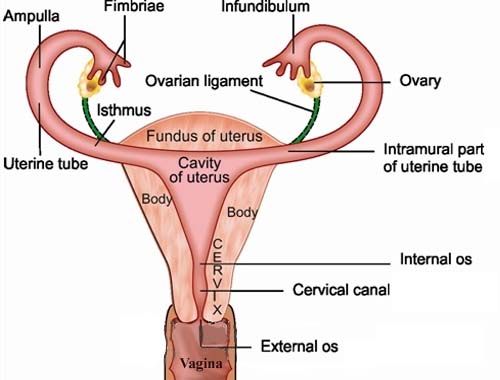Amenorrhea

Published: 18 Jun 2025
ICD9: 626.0 ICD10: N91.2 ICD11: GA20.0
Amenorrhea is the absence of menstruation, typically defined as:
![]() Primary amenorrhea: The failure to begin menstruating by age 15, or by age 13 if there's no other signs of puberty.
Primary amenorrhea: The failure to begin menstruating by age 15, or by age 13 if there's no other signs of puberty.
![]() Secondary amenorrhea: The cessation of menstruation for three or more consecutive months in women who have previously had regular periods, or for six months in women who have had irregular periods.
Secondary amenorrhea: The cessation of menstruation for three or more consecutive months in women who have previously had regular periods, or for six months in women who have had irregular periods.
In simpler terms:
It's when a woman or girl doesn't get her period when she should or when her period stops for a significant amount of time.
Causes:
The causes of amenorrhea are varied and depend on whether it's primary or secondary. Common causes include:
![]() Pregnancy: A common and normal cause of secondary amenorrhea.
Pregnancy: A common and normal cause of secondary amenorrhea.
![]() Hormonal imbalances: Problems with the hypothalamus, pituitary gland, ovaries, or thyroid gland. These can be related to polycystic ovary syndrome (PCOS), thyroid disorders, or high levels of prolactin.
Hormonal imbalances: Problems with the hypothalamus, pituitary gland, ovaries, or thyroid gland. These can be related to polycystic ovary syndrome (PCOS), thyroid disorders, or high levels of prolactin.
![]() Lifestyle factors: Excessive exercise, low body weight, eating disorders, stress.
Lifestyle factors: Excessive exercise, low body weight, eating disorders, stress.
![]() Medications: Certain medications, such as antidepressants, antipsychotics, chemotherapy drugs, and blood pressure medications, can affect menstruation.
Medications: Certain medications, such as antidepressants, antipsychotics, chemotherapy drugs, and blood pressure medications, can affect menstruation.
![]() Anatomical problems: Issues with the reproductive organs.
Anatomical problems: Issues with the reproductive organs.
![]() Genetic conditions: Such as Turner syndrome.
Genetic conditions: Such as Turner syndrome.
![]() Premature ovarian failure: The ovaries stop functioning before age 40.
Premature ovarian failure: The ovaries stop functioning before age 40.
![]() Asherman's syndrome: Scar tissue in the uterus.
Asherman's syndrome: Scar tissue in the uterus.
![]() Hypothalamic Amenorrhea: Disruption of the hypothalamus, often related to stress, weight loss, or excessive exercise.
Hypothalamic Amenorrhea: Disruption of the hypothalamus, often related to stress, weight loss, or excessive exercise.
![]() Other medical conditions: Chronic illnesses.
Other medical conditions: Chronic illnesses.
When to see a doctor:
It's important to see a doctor if you experience amenorrhea, especially if you are sexually active and could be pregnant. A doctor can help determine the underlying cause and recommend appropriate treatment. Prompt diagnosis and treatment can help prevent potential complications like infertility or bone loss.
Note: Amenorrhea can sometimes be a symptom of a serious underlying medical condition, so it's important to get it checked out by a healthcare professional.